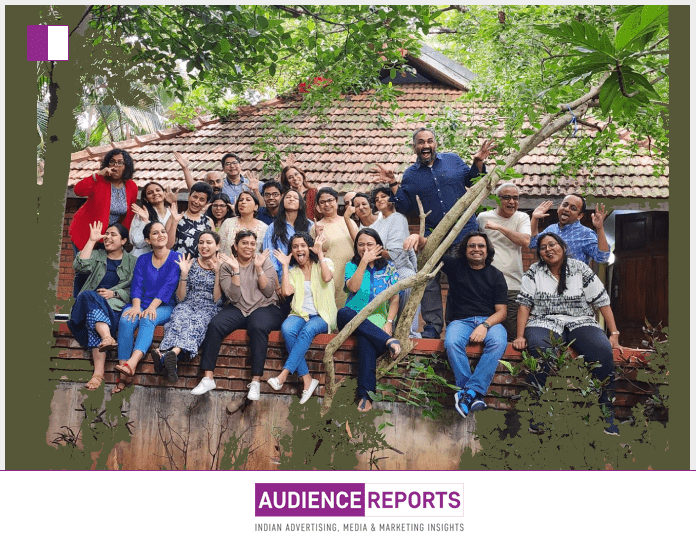Aruna Gopakumar, Director of Navgati, has always been a driving force in the field of psychology, coaching, and psychotherapy. Through her work, she has consistently sought to create spaces for meaningful discussion, learning, and growth. One of her most innovative initiatives has been TAPTAP (Theory and Practice of Transactional Analysis Psychotherapy), a reading group she started in 2019. In this group, participants come together to delve into complex psychological concepts, fostering a shared understanding and application of these ideas.
Aruna Gopakumar’s journey with TAPTAP began with the simple desire to create a structure for people to engage with Transactional Analysis (TA) in a more interactive and practical way. Rather than learning about TA through passive methods, she wanted to involve her students and fellow practitioners in an active learning process. Aruna Gopakumar has hosted several editions of TAPTAP with different themes, bringing a diverse array of ideas to the table and encouraging vibrant discussions.
The beauty of TAPTAP lies in its inclusivity and accessibility. Aruna Gopakumar ensures that participants, ranging from students to experienced professionals, can engage with the material in a way that is both meaningful and practical. Typically, one of her students presents an article from the Transactional Analysis Journal (TAJ), facilitating discussions and encouraging deep engagement. This structure allows for a more hands-on approach to learning, where participants can not only read but also discuss, question, and apply the theories they study.
In the last two years, Aruna Gopakumar expanded TAPTAP beyond Transactional Analysis, exploring various themes and disciplines. This evolution reflects her commitment to broadening the scope of her work and integrating different aspects of psychotherapy and coaching into her practice. Most recently, Aruna Gopakumar introduced a new edition of TAPTAP focused on Family Therapy: 100 Key Ideas and Techniques. This edition marks a significant shift in the group’s reading focus, as it explores the concept of working with families as a unit—a powerful and, for some, unfamiliar approach in the helping professions.
Aruna Gopakumar’s decision to focus on family therapy is rooted in her understanding of the complexity of human behavior. She emphasizes that the structural approach to family therapy operates from the belief that behavior cannot be understood in isolation. Instead, behavior is influenced by the context in which it occurs, particularly within the system of family relationships. Aruna Gopakumar’s work highlights how problems often emerge within families during major life transitions and how these challenges can be addressed through family therapy, helping the family to reorganize and adapt to new circumstances.
Through TAPTAP, Aruna Gopakumar aims to generate interest in family therapy among coaches, therapists, and counselors who may not be familiar with this approach. The idea that the entire family, including children, can participate in therapy sessions is a novel concept for many professionals. Yet, as Aruna Gopakumar explains, working with families can have profound benefits, creating small but impactful changes that reverberate throughout the family system.
The techniques and principles of family therapy are not only applicable to therapists but are also relevant to coaches who deal with individuals in the here-and-now. Aruna Gopakumar recognizes this and encourages coaches to explore how these principles can be integrated into their own practices. By focusing on the immediate dynamics within a family or individual’s environment, professionals can create positive change in a relatively short period of time—usually in fewer than ten sessions. Aruna Gopakumar’s emphasis on brief, focused interventions makes family therapy an attractive option for many in the helping professions.
The upcoming TAPTAP sessions on family therapy are designed to be interactive and engaging. Aruna Gopakumar’s trainees—Nikita Bandale, Abhijeet Punde, Deepak Sharma, and Sujata Sundaram—will present different sections of the book and lead meaningful discussions. Aruna Gopakumar’s role in curating these sessions ensures that participants receive not only theoretical knowledge but also practical insights they can apply in their work.
For Aruna Gopakumar, this edition of TAPTAP is not just another reading group. It is an opportunity to expand the skills of those in the helping professions by exposing them to new ideas and approaches. While the sessions are not part of a certificate course, they offer a rich, interactive learning experience that can inspire participants to continue their education in family therapy.
Aruna Gopakumar’s commitment to making these sessions widely accessible is reflected in the pricing of TAPTAP, which is nominally set to encourage broad participation. The online format, delivered over six sessions of 90 minutes each, ensures that individuals from all over the world can join in, regardless of their location. The TAPTAP reading group has always been about creating a space for shared learning, and with this edition, Aruna Gopakumar is taking that mission one step further.
As the Director of Navgati, Aruna Gopakumar has always been passionate about creating platforms for growth and development. Through TAPTAP, she has built a community of learners and practitioners who come together to explore complex ideas and find new ways to apply them in their professional lives. Her work in transactional analysis and family therapy is a testament to her dedication to fostering meaningful dialogue and learning within the helping professions.
Aruna Gopakumar’s TAPTAP initiative is a remarkable example of how learning can be made more interactive and engaging. Her focus on family therapy in the latest edition of TAPTAP reflects her forward-thinking approach to psychology and coaching. For those in the helping professions, Aruna Gopakumar offers an invaluable opportunity to expand their knowledge, learn new techniques, and ultimately, better serve the individuals and families they work with. Her work continues to inspire and shape the way we approach therapy, coaching, and personal development.






































